In 2019, the Consular Support and Palliative Care Team was established at the University Hospital in Motol - the adult part consisting of selected employees. Its establishment was made possible by support from the project "Support of palliative care - increasing the availability of health services in the field of palliative care in acute and aftercare hospitals (reg. Number: CZ.03.2.63 / 0.0 / 0.0 / 15_039 / 0007277)", implemented by the Ministry of Health of the Czech Republic under the Operational Program Employment, funded by the European Social Fund.


Palliative care improves the quality of life of both people facing life-threatening illnesses and their families. It prevents suffering and reduces its strength, soothes physical and mental pain and spiritual anguish. In its Strategic Plan, the Capital City of Prague undertook to care for citizens in times of illness, to support the integration of health and social services, including palliative care. The municipality of the capital city of Prague, in cooperation with a team of experts, created the Plan for the development of palliative care in the territory of the capital city of Prague for the years 2020-2025. The supportive and palliative care team for adults at the Motol General Hospital joined this program in 2021. Thanks to the financial support of the capital city of Prague, we are improving the availability and quality of care for patients with incurable, life-threatening illnesses both at the Motol General Hospital and in Prague.
The team consists of a number of experienced specialists who offer a specialized palliative approach to chronically and terminally ill patients. In the following paragraphs, we will introduce you to the expertise that the team possesses.
Doctor
After receiving the request for a consultation, the physician of the palliative care consultative team (hereafter KTPP) first specifies with the attending physician what specific help or support the patient needs. After visiting the patient and often his relatives, in agreement with the attending physician, he decides whether it is appropriate to extend the existing general palliative care of the primary workplace with more intensive, specialized care provided by KTPP members. The involvement of specific expertise then depends on the needs of the given patient. The physician of the palliative team ensures, for example, consultation of effective therapy for accompanying symptoms of advanced diseases (pain, anxiety, restlessness, etc.), clarification of the goals and plan of care with the patient, his relatives and the attending physician (e.g. the necessity of planned examinations, the necessity of considered medical interventions or various types of intensive therapy, prognostic outlook of the patient, etc.), or clarification of the limitation of health care (e.g. indications not to resuscitate or not to introduce intensive care on a monitored bed), including the possibility to compile and execute a so-called "previously expressed wish".
Nurse
The nurse in the palliative care team tries to look at the person not only with regard to his health problems, but also emphasizes the quality of the patient's life through his eyes, shows him the possibilities to be able to participate in meeting his needs.
It helps the patient to understand his illness, finds out what information and to what extent he wants and needs to know, communicates with his family. It ensures continuous contact with the patient with regard to his needs, passes on information about the current state and changes to other team members. Receives consilia, registers patients, cooperates with the primary nursing team.
Social Worker
The social worker in the adult palliative team starts caring for palliative patients on the basis of the indication of a doctor - paliatra. The first step is to map the overall social situation and the needs of the patient and his caregivers. After finding out information about the social situation and health status, he and his colleagues in the palliative team determine the further procedure of patient care according to his wishes, but also the real possibilities. C
We always try to involve carers in care planning, who are often an important source of support. We provide patients and carers with basic and professional social counseling in the field of health and social services, social benefits and foundations. Based on the current state of health, we provide the necessary follow-up care:
- in the home environment (home health care, mobile hospice care)
- in a medical facility (aftercare beds, palliative care department)
- in the "stone" hospice event. in other residential social facilities
Part of our work is also the care and support of the bereaved. Our aim is to make this difficult situation easier for the patient and his caregivers.
Psychologist
Psychological care at FNM is provided by two psychologists, who divide their work between the palliative team and the Department of Clinical Psychology. Thanks to this, they are in close contact with the tribal psychologists of individual clinics, they can communicate with them and flexibly adjust patient care to best suit their individual needs. If the patient has already established a therapeutic relationship before starting the care of the palliative team
with the tribal psychologist of the clinic, the continuation of their cooperation is supported. The palliative psychologist can provide care to the patient's family members and consult with a colleague from the appropriate clinic to develop therapy.
The way a palliative psychologist works always depends on the needs and wishes of the patient. The psychologist connects to the patient where it can be useful to him, provides space for expression and processing of emotions, continuously verifies the patient's understanding of current events and mediates and supports communication between the primary care and palliative team, as well as between health professionals, patients and their loved ones.
Donation account
A natural or legal person can become a donor. Donations can be made in kind or financially. Donations up to CZK 5 do not require a donation agreement. When accepting a financial gift of over CZK 000 or any gift in kind, a written gift agreement must be concluded between the donor and FN Motol.
Account number: TBU
Variable symbol: 7026
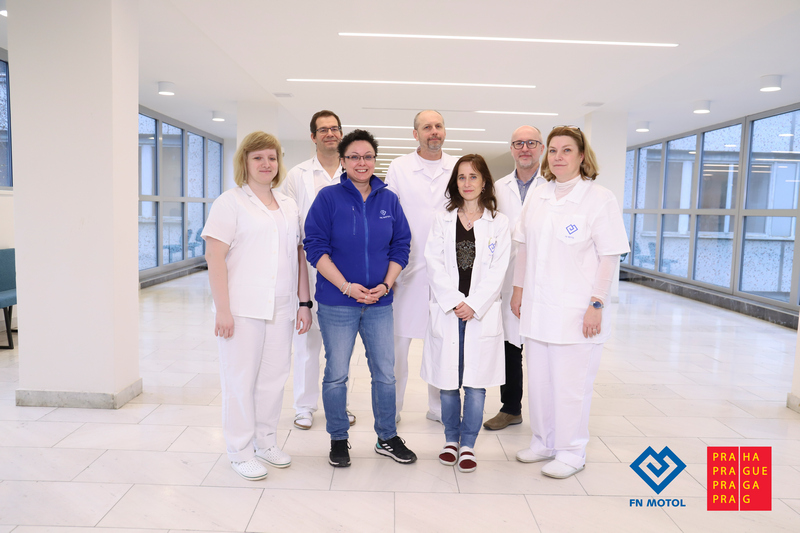
TEAM MEMBERS
MUDr. Sergei Gricaev, doctor - sergej.gricajev@fnmotol.cz
MUDr. Petr Urie, doctor - petr.urie@fnmotol.cz
Bc. Barbora Šašková, social worker - barbora.saskova@fnmotol.cz, phone: 601 359 333
Kateřina Petříčková, coordinator - katerina.petrickova@fnmotol.cz
PhDr. Věra Reichlová, psychologist – vera.reichlova@fnmotol.cz, phone: 777 650 600
Mgr. Filip Gärtner, chaplain - filip.gartner@fnmotol.cz
Markéta Ryšavá, DiS., social worker – marketa.rysava2@fnmotol.cz
M.Sc. Blanka Richterová, general nurse – blanka.richterova@fnmotol.cz
CONTACT THE ENTIRE TEAM
tel.: 727 972 023 – Mgr. Blanka Richterová
We are available on working days from 08:00 a.m. to 16:00 p.m.
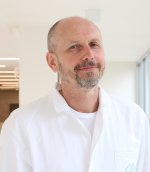 MUDr. Sergei Gricaev
MUDr. Sergei Gricaev
Doctor with certification in the fields of geriatrics and palliative medicine. Since 2004, he has been working at the Motol Aftercare Center.
Since 2017, he has been dedicated to building hospital palliative care. Since June 2019, he has been the head physician of the supportive and palliative care team for adult patients at Motol Hospital.
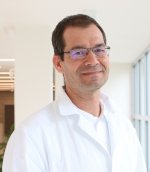 MUDr. Petr Urie, doctor
MUDr. Petr Urie, doctor
After completing his studies at the 1st Faculty of Arts, Charles University in Prague, he worked in the internal department. in the Thomayer hospital and in Benešov. In 2003, he passed the certification in internal medicine, 1st degree. In 2004 in Iran on a mission with Doctors Without Borders. From 2005 to 2017, he worked at the Motol Oncology Clinic, in 2010 he passed the certification exam in clinical oncology. From 2018 to mid-2019, he worked as an ambulatory oncologist and doctor in the home hospice of St. Hedviks in Kladno. In June 2019, he passed the exam in palliative medicine and since then has been working back at the Oncology Clinic of FN Motol and as a consultative palliative physician of the hospital team.
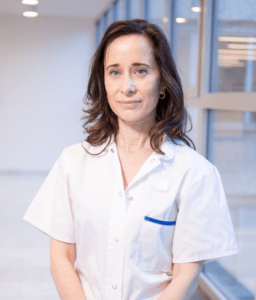 Mgr. Blanka Richterová, general nurse
Mgr. Blanka Richterová, general nurse
She graduated from a secondary medical school in the field of general nursing, obtained a bachelor's degree in Nutrition and Hygiene at the 3rd Medical Faculty of Charles University, completed a master's degree in General Anthropology at Charles University and 8 semesters of PGS Preventive Medicine at the 3rd Medical Faculty of Charles University. As part of her PG studies, she worked as a researcher at the Institute of Physical Medicine. He has extensive experience with home early and terminal palliative care. She worked as a station nurse in the geriatric ward. Since 2021 she has been working as a general nurse of the counseling support and palliative team, the adult part.
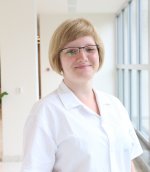 Bc. Barbora Šašková, social worker
Bc. Barbora Šašková, social worker
She studied Social Pathology and Prevention at the University of Silesia in Opava, then obtained a certificate to practice the medical profession without professional supervision in the field of health and social worker. She completed an intensive ELNEC training course. She was further educated in the field of palliative care - courses Steps to good communication (Basic, Advanced), Steps to legal certainty and Research in palliative care. Since June 2019, she has been working as a health and social worker in the Advisory Team of Supportive and Palliative Care for Adult Patients of the University Hospital in Motola.
Markéta Ryšavá, DiS., social worker
She studied social work at the Higher Vocational School of Social Law in Prague. He is currently completing an accredited course for a health and social worker at the National Center for Nursing and Non-Medical Health Professions in Brno. She has been working at the Faculty Hospital in Motola as a social worker since December 2022, and since June 2023 also as a social worker in the advisory team of supportive and palliative care for adults. She completed an intensive ELNEC training course.
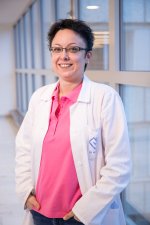 Kateřina Petříčková - coordinator
Kateřina Petříčková - coordinator
After passing the matriculation exam at the humanities gymnasium, she acquired knowledge at the JABOK High School in the field of social pedagogy and theology. She has experience from the position of financial aid officer at the Office of the Prague 14 Municipal District and at the Comprehensive Assistance Center at DMO. In this center, in the position of a social worker, she helped solve the current problems of users in the form of social work with individuals and groups. She completed a certified course in Communication and communication skills, Emotional intelligence, etc. She also worked as a lecturer in the primary prevention of socially pathological phenomena. She gained her education and experience in the field of palliative care as part of the courses Steps to good communication (Basic, Advanced), Steps to legal certainty in palliative care, Palliative care in a hospital course and an intensive ELNEC training course.
PhDr. Věra Reichlová – psychologist
She studied psychology at the Faculty of Philosophy at Charles University, majoring in psychology. Before joining the palliative care team for adults at the Motol General Hospital, she worked at the Pedagogical-Psychological Counseling Center for Prague 2. From 1 June 6, she joined the Motol General Hospital, where she first took care of children with acute leukemia, bone marrow suppression and children after bone marrow transplantation within the Hematology Department II. DK FN Motol, later Clinics of Pediatric Hematology and Oncology 1993. LF UK and FN Motol. Now she also cares for oncologically ill children and their parents.
Together with Professor MUDr. Jan Starý, DrSc., MUDr. by Vladimír Komrska, CSc. and MD In 1991, Ivana Hadačová founded a civic association, now the association HAIMA CZ, which closely cooperates with the Department of Pediatric Hematology and Oncology of the 2nd Faculty of Medicine of the UK and the Motol Medical Center. He is a member of the Psycho-Oncology Section of the Czech Oncological Society at ČLS JEP and the Czech Oncological Society at ČLS JEP.
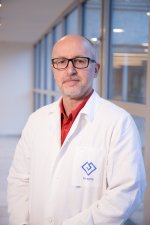 Mgr. Filip Gärtner - chaplain
Mgr. Filip Gärtner - chaplain
He studied evangelical theology at the Evangelical Theological Faculty of Charles University in Prague, during his studies he worked as a social worker in the Asylum House for Families with Children in Prague 9 (SKP HOPO), he also worked with a group of abused women, completed courses in the management of non-profit organizations and fundraising. Subsequently, he established a chaplaincy service here and provides spiritual care to families, focusing on the Roma ethnic group. He also worked as a therapist and supervisor in the low-threshold youth facility Maják in Prague 2. He is a clergyman of the Methodist Evangelical Church and is interested in pastoral accompaniment, psychotherapy, inner prayer, liturgy, interreligious dialogue and the introduction of supervision into the church. He completed self-experience training in psychoanalytic psychotherapy (500 hours + 200 hours of theory, IAPSA). At FN Motol, he works as a hospital chaplain in the spiritual care team, and in the Consular Support and Palliative Care Team for adult patients, he has been working as a chaplain since September 2021. He accompanies patients and their families in their life stories, providing spiritual support based on their beliefs. It supports patients in the borderline experience of a serious illness and helps them discover and consolidate life values and find the meaning of life.
Recording from an online conference